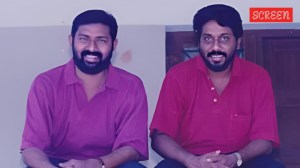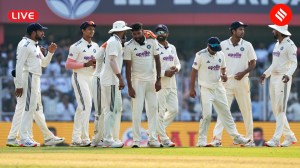Rumours swirl around first Nobels of millennium
STOCKHOLM, OCT 3: The first Nobel literature award of the 21st century is due to be announced in the next week or two with a non-European ...

STOCKHOLM, OCT 3: The first Nobel literature award of the 21st century is due to be announced in the next week or two with a non-European likely to clinch the prestigious and valuable prize, according to talk in Stockholm literary circles.
As ever the Swedish Academy, which traditionally unveils literature’s top accolade on a Thursday in October, was keeping the announcement date a closely-guarded secret until the last minute and letting nothing slip about its candidate list.
But with dates for the Science, Economics and Peace prizes confirmed for the week beginning October 9, and more than $1 million at stake for each prize, the perennial rumour-mill is already grinding out plenty of speculation.
“It’s a shot in the dark of course, but personally I expect a non-European author,” said Erik Wallrup, chief critic at Sweden’s Svenska Dagbladet daily.
He tipped Trinidad-born V S Naipaul but said Swedish poet, Tomas Transtromer, and Belgian author, Hugo Claus, were possibles.
The Academy always announces its decision at 1 pm (1100 GMT) on the chosen day outside its headquarters on Stockholm’s mediaeval Old Town island.
“There’s definitely an element of which continent is it going to be this year?’,” said Adrian Tahourdin of the
.
“The chances are it won’t be an European and if it’s an African, (Nigerian novelist) Chinua Achebe is a good bet.”
Other worthies included South Africa’s J M Coetzee, Canadians, Margaret Atwood and Alice Munroe, US writer Philip Roth and exiled Chinese poet Bei Dao.
Among European hopefuls were Cees Nooteboom of the Netherlands, Albania’s Ismail Kadare, Sweden’s Astrid Lindgren and Zimbabwe-raised British octogenarian Doris Lessing.
British author Salman Rushdie was a long shot.
“He’s in mid-career,” Tahourdin said. “If they’re going to give it to him they’ll wait a while. Plus they tend to steer clear of controversy.”
Two of the Academy’s 18 members stopped attending its weekly meetings in 1989 after the then secretary refused to condemn Iran’s death edict on Rushdie, and a third member is also boycotting the meetings, so the prize is in the hands of 15 people.
The science awards were seen as wide open, with dozens of stellar candidates for Medicine/Physiology on Monday 9th and Physics and Chemistry on Tuesday 10th.
One poignant decision will be whether to reward Craig Venter, whose company Celera Genomics raced the publicly funded Human Genome Project to map the fundamental human genetic code.
“What Craig Venter did is of enormous interest to the academic world. It will have to be considered. But there’s still a certain amount of resentment,” said the New Scientist magazine editor, Jeremy Webb.
“In many ways, he broke the academic model for how these things should be done. He introduced the commercial side.”
As ever, most Science awards will probably go to researchers working in the United States, especially for Physics.
“They have got the infrastructure, the universities and the culture,” American Institute of Physics Chief Science Writer Phil Schewe said.
“More and more we are getting an equitable distribution of talent, but the US still has a disproportionate number of physicists and good results, and will continue to because the economy is strong at the moment. But these things go in cycles.”
Physics likelies include Eric Cornell, Carl Wyman and Wolfgang Ketterley for refrigerating atoms into a new state, and Geoffrey Marcy and Paul Butler for discovering distant planets.
Melvin Schocket, Paul Grannis and Leon Lederman, already a Nobel winner, may get a taste of glory for their breakthroughs in finding new subatomic particles.
George Smoot and John Mather are in the running for research on disturbances in cosmic microwave radiation that let researchers peer into the first seconds after the Big Bang.
Academics also point to work on black holes by Stephen Hawking and John Wheeler, the discovery of a key computer hard-drive technology by Stuart Parkin, and work on atom wave interference by David Pritchard and Theodore Hanch.
In chemistry, Peter Armbruster deserves recognition for helping discover new chemical elements.
Economics is due on Wednesday 11th. Norway’s Nobel Committee will announce the peace prize in Oslo on Friday 13th.
The prizes, first awarded in 1901, were created in the will of Swedish industrialist Alfred Nobel, the inventor of dynamite, who died in 1896. They are presented in glittering ceremonies in Stockholm and Oslo on December 10, the anniversary of his death.





- 01
- 02
- 03
- 04
- 05


























